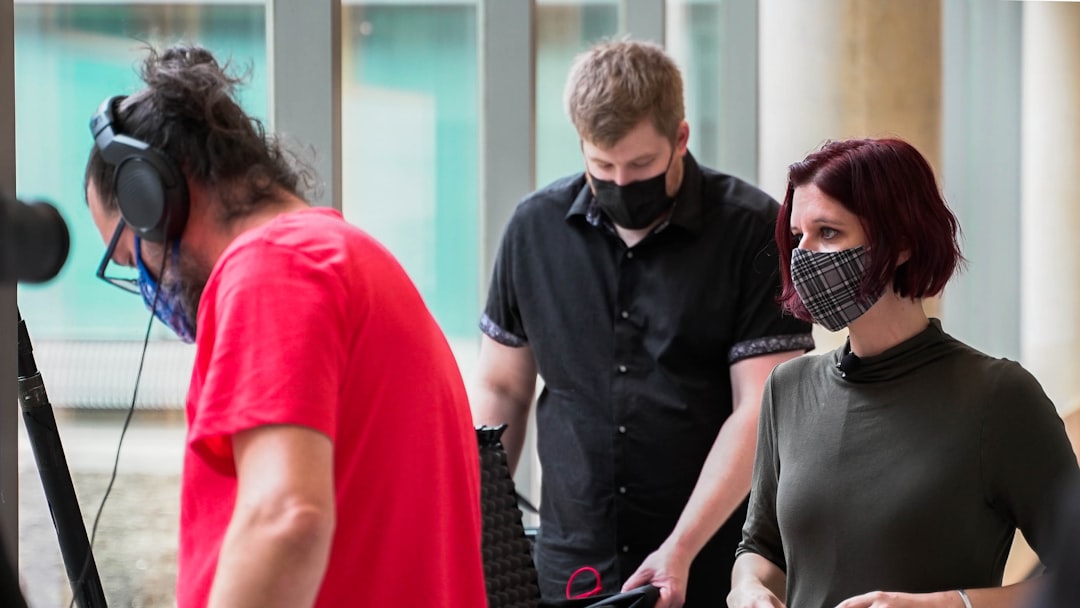At Coburg Banks, we're not a major fan of interview brainteasers.
In fact in one of our previous posts, 27 Behavioural Questions You Must Ask Your Interviewees we openly discredited their efficiency!
We just feel that they're a little too off-putting for candidates, who are already feeling the pressure and unless utilised correctly, they really don't reveal that much!
However, if you're going to do something, you might as well do it right!
This week, we're breaking down brainteasers, so you can make a more informed decision - are they right for your business?
Why use brainteasers?
Generally, the best hires are those who can identify problems quickly and solve them efficiently.
Critical thinking brainteasers have been created to assess candidates on the following key skills…
- Problem Solving. Can they at least attempt to solve problems as they arise? You don’t want an employee who keeps running to you, every time something goes even slightly wrong.
- Analysis. Can they look at the big picture and analyse all the available information to find a solution? You don’t want an employee who continuously overlooks important considerations.
- Creativity. Do they think outside the box? Sometimes, all it takes is a little bit of creative thinking so you don’t want an employee, constrained by the ‘rules’ (not all the time, anyway!)
- Performance under pressure. These questions will probably be completely out of the candidate’s comfort zone and it’s unlikely that they’ll have prepared for them. Can they keep it together?
Asking questions that have no relevance…sounds like a great idea – right?
We'll let you decide.
1. The pizza puzzle.
Q1. "If you were a pizza delivery man, how would you benefit from scissors?"
This little gem is attributed to Apple Inc and there clearly isn't a 'right answer.'
However, you can still use it to assess your interviewee's ability to think critically and make well-formed arguments.
Good signs:
A great candidate will take time deliberating over exactly what it takes to be a pizza delivery man or woman and will consider exactly how they would use the scissors.
Clever so-and-so's may even come up with reasons not to use scissors, which is still perfectly acceptable, as long as there is thought behind the decision!
Bad signs:
These types of questions are likely to frustrate some interviewees so watch out for those who aren’t willing to play the game.
It’s an interview after all and you make the rules.
2. A calculated question.
Q2. "How would test a calculator?"
This is a fairly ambiguous question, attributed to IBM and you'd certainly assume that your average candidate won’t have dealt with the situation before!
Good signs:
You're looking for a detailed and strategic method of testing the calculator.
First they’ll have to work out exactly what the question means:
Is it referring to the general functionality of the calculator (the buttons) or its actual mathematical ability?
Then they’ll have to come up with a systematic and efficient means of testing it.
They may require some paper to make notes; "visual" thinkers will need some way to visualise the process.
Bad signs:
If a candidate appears to get confused by the question and the method they come up with doesn’t make any systematic or organisational sense, this could be a reflection on their general administrative skills.
However, there's nothing wrong with a candidate who asks you to repeat the question or explain in more detail; sensible candidates will want to ensure the question is answered well, without rushing in without a clue.
3. Apples and pears.
Epic Systems are to blame for this epic interview question:
Q3. "An apple costs 40 cents, a banana costs 60 cents and a grapefruit costs 80 cents. How much does a pear cost?"
Hats off if you've managed to work out the answer to this one (without sneakily peaking below)!
It's all about the vowels.
“If you charge 20 cents per vowel, the two-vowel word ‘apple’ would cost 40 cents, three-vowel ‘banana’ 60 cents, and four-vowel ‘grapefruit’ 80 cents. Therefore, a pear would cost 40 cents.”
Clever - right?
Good signs:
If anyone manages to work this riddle out in a high-pressure interview situation, then as far as I’m concerned, you’re on to a winner.
(But do beware of anyone who’s too quick to answer – they may have heard it all before!)
However in general, if the candidate can come up with any sensible price and a good explanation of how they came to it, then they certainly deserve brownie points.
Use your initiative; is their answer sound, thought-out and practical?
Bad signs:
If a candidate blurts out a number without being able to explain their reasoning, then they’ve clearly not bothered to consider the question properly.
4. What do a fox, a hen and a farmer have in common?
They're all trying to get to the other side of the river...
Q4. "A farmer needs to cross the river with his chicken, a sack of corn and a fox. His boat unfortunately only fits himself and one other thing. The fox and chicken are hungry, so if he leaves the fox with the chicken, the chicken will get eaten, whilst if he leaves the chicken with the corn, the corn will get eaten. How will the man get safely across with all 3?"
Do you recognise this question? Could you spontaneously answer it?
This is a really common brainteaser and is often utilised during group activities, to assess how well candidates can work together to solve a problem.
The answer is simple, when you know it:
The man takes the chicken across and then goes back for the fox. He can’t leave the fox and chicken together so when he drops the fox off, he picks up the chicken. He then goes back for the corn. He can’t leave the corn and the chicken together so when he picks up the corn, he drops off the chicken. When the corn is safely with the fox on the right side of the river, he goes to collect the chicken.
Goodness knows why a farmer would be hanging around with a fox...
Good signs:
Candidates who take the time to understand each varying element and work their way through potential answers strategically, are most likely to be impressive problem-solvers.
In group interviews, look out for candidates who facilitate the discussion, taking into account everyone’s opinion and helping them reach a conclusion; they’re the leader.
Bad signs:
If a candidate rattles off the answer immediately then chances are, they’ve faced this brainteaser before (a good, honest candidate will tell you if this is the case!)
Candidates who fail and don’t appear to ‘get’ the question or forget a major part of it (for example, they let the chicken and corn cross together) may have issues with listening, as well as critical thinking.
5. Number crunchers.
Q5. "How many potatoes (in kg) does McDonald’s sell in a year in the UK?"
There are hundreds of variations on this Oliver Wyman interview question, each assessing mental arithmetic and critical thinking.
- How many square feet of pizza are eaten in the UK every year?
- How many gas stations are there in the US?
- How many pennies, if placed on top of each other, would it take to reach the top of Big Ben?
The answer to the question is roughly 200 million kg of potatoes, however, like our other brainteasers, it's not about finding the perfect answer; it's about how they work it out!
Good signs:
Another toughie! If your candidate gets anywhere near, then that’s impressive enough.
If they don’t get anywhere near but explain calculations that are based on sensible presumptions, then it’s a great sign.
Bad signs:
Ask your candidate to talk you through their sums as they go along. You’ll soon suss it out if they can’t add up properly!
Again, hasty, unthoughtful answers show a disregard for the interview and interviewer.
6. One to really catch them out!
Q6. "Tracy's mother had 4 children. The first child was named April, the second was named May, the third June. What was the 4th child called?"
What would your answer be? July? Or did you work out the sneaky little plot twist within?
This cruel interview brainteaser depends on it's capacity to draw the listener's attention away from the answer, focusing on the unimportant information.
Spoiler Alert:
The question has already revealed the answer - 'Tracy's mother had 4 children' - the fourth child must be called Tracy!
The names April, May and June meant nothing.
Good signs:
Of course, there is a right answer - Tracy - and anyone who gets it exhibits a critical thinking, common-sensical brain behind those eyes.
Bad signs:
Candidates commonly answer with one of the two following things (unless they've completely missed the point)...
1) July. Don't be too harsh; these poor souls have simply fallen into your well-laid trap!
2) We can't know. Having missed the revealing reference to Tracy, some candidates may try to outsmart the question by concluding it's impossible to know. (It is probable that the fourth child is called July, but not certain.)
Unfortunately, both answers are just wrong!
7. That age-old question.
Q7. "How do you know if the light inside the fridge is on or off?"
This, somewhat philosophical, interview question has been attributed to Schlumberger.
Good signs:
There are a variety of ways to answer this question, some great and some not so great, so you'll have to be the judge...
You could...
- Use a camera
- Drill a hole in the fridge door
- Find the sensor and test it with your thumb
- Touch the light bulb and see if it's warm (be careful with this one though)
Although varying in practicality, all of the above do genuinely answer the question!
Bad signs:
Unlike some of our brainteasers, this question is fairly easy to answer; you certainly don't have to have any technical knowledge or special skills.
Candidates with no answer whatsoever (no matter how outrageous) are clearly lacking in creativity.
Summary:
You can use brainteasers at any stage of the interviewing process, from telephone to face-to-face interview…
…however they’re most effective during group interviews, giving you a chance to assess a candidate’s teamwork, as well as, problem solving skills.
Brainteasers could be about any topic you fancy, but it is critical to remember that they could be off-putting for certain candidates.
Never base your entire interview on brainteasers; you won’t learn anything about your candidates and you’ll come across unprofessional.
We recommend throwing (at most one or two) brainteasers into the interview, if you feel like it's going very smoothly, your candidate is confident and everything seems a little too rehearsed.
Above all else, try not to be too hard on your candidates.
Remember, they'll be judging you just as readily as you are judging them!
Good Luck!


















